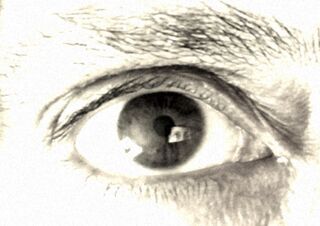Stress
I Was a COVID Frontline Worker
Here are some things I learned about our collective mental health.
Posted June 13, 2022 Reviewed by Ekua Hagan
Key points
- People avoid, lack good coping skills, and rationalize and support each other's avoidance.
- Many, if not most, people make trauma-informed choices, and stress exposes weak points.
- Powerful circumstances can force people to clarify their values, and virtual (therapy) can be effective.
- People are resourceful and resilient.
I remember 2020 vividly, just like most people around the world do—the year the SARS-CoV-2 hopped aboard a bunch of hosts and took airplanes to just about every corner of the planet where humans reside.
Just like most people, I had a life and plans. I was fortunate to have meaningful work as a psychotherapist, friends and family who I loved, and had become an empty-nester about six months prior. I was disoriented and missed my kids, but I was also pleased and excited with my newfound freedom.

Also like most, I was shocked and afraid when the world shut down and we were told this virus could kill us. But I had a job to do, and without pause, I reached out to my patients and told them I would continue to be available to see them virtually. I had had several patients in the past who I had seen virtually for various reasons, so it seemed like a couple of weeks (who knew?) seeing everyone virtually could be just fine. My practice rapidly grew to three times its size over the next couple of months. Many former patients were reaching out to me to return to therapy and many others were seeking support. Many more than I could take.
As they should be. It was a scary, overwhelming, shocking, time. Family members who were used to spending much of their life apart from each other were suddenly forced to be together all day, every day. While working and somehow learning. Those who were unable to stay home–hospital employees, those who work for grocery stores, people who repair homes—and many other “essential workers”—had to continue working while now fearing for their lives. People in charge of emergency services had the usual stress multiplied by 100. Marriages and family relationships were under tremendous stress, kids were suddenly without their friends, and people struggling with addiction and without emotional tools for coping felt themselves slipping under.
Everyone was in shock, fear, and overwhelm. Many were doing the right thing by reaching out to get help.
And just like every other person on the planet, I was going through it too—my kids were sent home from college and moved into every available space. I was forced to see all my patients (virtually) in any room in the house that happened to be available. My side business which was helping to pay the bills was shut down. I had to navigate and negotiate levels of caution and risk with my partner, family and friends. And, like most, I closely followed the news watching people all over the world being hospitalized and dying. Like everyone else, I was coping the best I could.
Only it was my job to also be there for everyone else.
Helping people live through a global pandemic wasn’t something I was trained for. But I also wasn’t trained to help people cope with—and thrive within—a trauma that I was struggling to survive myself. In other words, there weren’t any manuals out there that I was aware of that addressed “How to Help People Through a Lethal, Global Pandemic That You, Yourself, Are Surviving.”
So here I was, a behind-the-scenes frontline worker in a crisis of global proportions without the specific training for it while trying to figure out how to survive it myself. I researched wartime psychotherapy, used all of my related knowledge and training that might be applicable in some way, and frankly used my own experience (with the help of my own therapist) in order to be there, the best I could, for my patients.
Like everyone else, I’m still working on processing and digesting this ongoing experience of living with COVID and helping many others through it. As I do, I’m aware of some of the things I have learned about people (or had confirmed) in the process:
- People avoid (everything) and lack good coping skills. Yes, avoidance was rampant before the pandemic but it went into overdrive after lock-down. Addiction skyrocketed (as did overdoses) as people frantically did everything they could to avoid the emotions—fear, isolation, overwhelm, grief, anger—they were feeling. The pandemic made it abundantly clear many people didn’t know how to meditate, take care of themselves, sit with their feelings, and talk to each other. There are experiences all of us need and desire, and, unsurprisingly, avoidance doesn’t get us there.
- People rationalize and support each other's avoidance. I was in utter disbelief when liquor stores were named as an essential business (but then again, see #1), and it was celebrated. Memes circulated about people “needing a drink.” Articles were written about how Dry January was just too hard. “Wine moms” became an accepted trope. It is understandable people needed to feel community and camaraderie, it was deeply sad that people sought it out through their substance use and abuse.
- Many—if not most—people make trauma-informed choices. It felt—and still feels—to me that people made choices that were based on their experience… and that experience wasn’t good. It was a scary time and people felt there was no one looking out for them or keeping them safe. They mistrusted the government, institutions, the news, and their neighbors. Gun sales were the highest in history, as were societal divisions and tensions. There were many contributors to this, but those contributors exploited what was already there: People who grow up feeling unsafe, dismissed, unseen, and traumatized are easy prey to messages that confirm that they should continue to feel that way. Lack of feeling of community and connection and being cared for leads to fear and divisiveness. Trauma leads to trauma-informed thoughts and actions.
- Stress exposes weak points. So many of the people who came to see me during that time were under tremendous stress, but often it was not the fear of becoming sick or dying or losing a loved one that brought them in. Even for the essential and frontline workers—while there was certainly stress they were experiencing because of their exposure or attempt to save others, that was most often not the topic that they brought to their session. Certainly it got talked about, but more often than that, it was their troubled relationships or other life circumstances that were at the fore. Without the usual things to distract themselves, people came face to face with the stuff they had been avoiding for years. Familial and romantic relationships fractured from people being forced to confront long-avoided issues. Yes, the pandemic created unique circumstances and stress, but many people found themselves having to deal with issues that had been there for a long time but they had previously been able to avoid.
- Powerful circumstances can force people to clarify their values. Politically, it was/is a particularly divisive time, and personally people have vastly different safety tolerances. Relationships that were sustained because of the ability to avoid certain topics suddenly found themselves forced to have overt conversations about those things and confront differences that they could no longer delicately sidestep. People were forced to get clarity about their values and often take painful and difficult actions based on those values.
- Virtual (therapy) can be effective. I had worked virtually occasionally before the pandemic, but when forced to take all of the work into my virtual office, I could clearly see that therapy can work regardless of where or how it takes place. Many people doing many kinds of work found this to be true, and I believe the result is a net positive one. People can now seek help from a therapist who lives nowhere near them, but also many workplaces can create a much more flexible work environment that can allow for people with complicated lives to meet the needs of their companies and their own obligations at the same time.
- People are resourceful and resilient. As intense and difficult as the work has been during the pandemic, it was also deeply moving. People stepped up to save lives and devoted themselves to it. People confronted fear of death and lost loved ones. Family members lived apart from each other in order to protect each other. Children were educated at home by people who didn’t know how to teach, and cared for by people who were stretched thin. People adapted to working at home without a quiet place to work, and grocery shopped for those who faced the possibility of death if they left home. Many people did not survive the pandemic, but many did and their resourcefulness, generosity, and resilience reminded me of what we’re capable of.
I am certain that we will be digesting and learning from this global pandemic experience for quite some time. Hopefully, the knowledge we gain can help us to see what we need to and create a better life—and planet—for our collective future.


